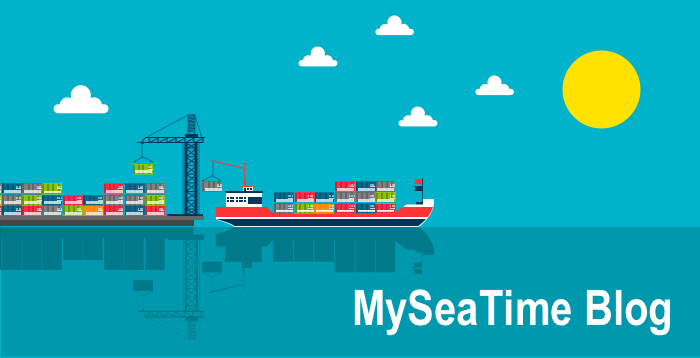Q.What is the difference between convention and code ?
A convention is an agreed set of rules related to a particular matter. For example
- Safety of life at Sea convention (SOLAS) for safety related matters at sea.
- MARPOL for matters related to Marine pollution
More often than not, the need of a convention is triggered by a major incident.
For example the need to have SOLAS convention was triggered after sinking of Titanic. Similarly the need to have MARPOL convention was triggered by number of pollution incidents.
Sometimes the need of a new convention is also felt after a major research study. For example, research on ballast water found that ballast water is a reason of concern and requires attention to the way we manage ship's ballast. That led to the "Ballast water convention".
For whatever reason, when a need for a new convention is felt, IMO after a long study and processes drafts the convention.
This draft is discussed and adopted by the relevant committee of the IMO. The adopted convention is ratified once the pre set conditions (number of states and minimum tonnage) are met.
Now let us come to the point. Where does code fit in all this ?
To understand that, put yourself in the center stage. You have been given the work to draft a convention.
Let us say you have to draft SOLAS convention. And you are now drafting Chapter III of SOLAS convention, which is
Life saving appliances and arrangement
Let us say in this chapter you are drafting the requirements for Lifejackets. And you wrote this,
Brilliant !!! But there is something missing. Which lifejacket are we talking about here ? Will the inflatable type life jacket do ? What do we mean by "Infant Lifejacket ? So many questions. And here are the answers to the specifications of the required life jacket.
And the standards required for Lifejacket goes on for another 3 pages in the LSA code.
And we are not talking about including only these 4 pages in SOLAS chapter III. This is only the description for Lifebuoy. We have many more life saving equipments and description of those will also be required.
Not only that. We have a SOLAS chapter for fire fighting equipments also and the description of those would also be required.
So if we do not put all these requirements of required standards into a different book called "Code", we will face two issues
- The size of the draft of convention would increase 10 fold, and
- The conventions will not be clear to the reader
Imagine if we have all these codes (that are part of SOLAS) incorporated inside the SOLAS
- FSS Code
- LSA Code
- ISM Code
- ISPS Code
- Intact stability code
It would be difficult. So instead what we can do is
- Provide all these informations as a "code" and
- wherever required, mention the code reference in the convention
This is exactly what IMO does with all its conventions. Want to see how the SOLAS requirement of Life Jacket is drafted ? Here it is
So one line and a different book for standards called "Code" does the trick.
So a Code to a convention is part of the convention. It provides the international standards required for the elements mentioned in that particular chapter of the convention.
- Like (6)
- Dislikes (0)
Mayur More
Apr 27, 2017Thanks a lot sir for your explanation , your blogs are really helpful in understanding the basics which is essential during our orals examination. Still have one question , whether all the codes are mandatory, in case of a chemical tanker, we have IBC (SOLAS chap 7)code and FSS(SOLAS chap 2 part2) code, but both have mention of fixed low expansion foam system for deck, do we need to comply with reqirement of both the code?
Rajeev Jassal
Apr 30, 2017Codes in itself are not mandatory. Codes become mandatory by having its mention in the convention. For example LSA code is compulsory because SOLAS mentions it. Requirements of both the codes (FSS and IBC) will not be contradictory so I don't see an issue in that.
Jaimangal Singh
Jul 23, 2017Very good information and very simple and sober language. You should write a book so coming generation can learn & understand very easy
Rajeev Jassal
Aug 22, 2017Thanks, Jaimangal...I try my best to help fellow seafarers.
Rajkamal Jaiswal
Aug 22, 2017Very well explained sir, thanks.
Rajeev Jassal
Aug 22, 2017Thanks, Rajkamal...
Michael Gnanam
Nov 22, 2017Thank you Capt. Rajeev - your site is my go to place to clarify all my Marine related doubts!
Rajeev Jassal
Nov 22, 2017Thanks Michael...
Neil Gould
Sep 10, 2019Hi Rajeev, is there a method on this forum to follow you and yr articlesHaving difficulty Thanks Neil Gould Hong Kong
Blog on same topic
Blog you cannot miss!
Questions on same topics
Popular questions and their answers
- The tanker is carrying Gasoline but in " List of Dangerous Goods " we normally tick "NIL " to report to the Custom . I dont know Why? Because Gasoline UN number is 1203 and belong Class 3 of IMDG code.
- When the ship's name and classification society changes, is it required to be reflected in the ship's plans? I am sailing on a vessel whose plans have the stamp of previous class with old name.
- What are the disadvantages of ISM code, if any?
- What is the difference between EEOI and EEDI?
- Why was there a need for making a new IBC code?
More things to do on myseatime

MySeaTime Blogs
Learn the difficult concepts of sailing described in a easy and story-telling way. These detailed and well researched articles provides value reading for all ranks.

Seafarers Question Answers
Ask or answer a question on this forum. Knowledge dies if it remains in our head. Share your knowledge by writing answers to the question

MySeaTime Podcast
This podcast on the maritime matters will provide value to the listeners. Short, crisp and full of value. Stay tuned for this section.



